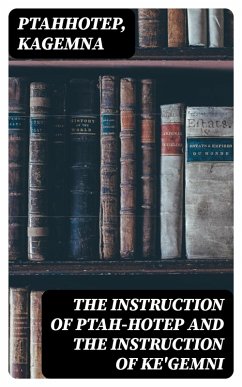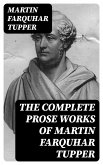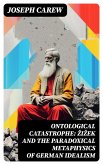In 'The Instruction of Ptah-Hotep and the Instruction of Ke'Gemni,' readers encounter an exploration of ancient wisdom perfectly encapsulated in the timeless teachings of two eminent Egyptian viziers. This collection skillfully interlaces discourses on morality, governance, and personal conduct, offering a rich tapestry of ancient rhetorical styles and philosophical queries. The works collectively create a profound dialogue on how ethical living can influence both personal contentment and social harmony, embodying the importance of wisdom literature in shaping early Egyptian culture and beyond. The diversity of teachings presented provides varied insights into ancient Egyptian perceptions of justice, authority, and the ethical obligations held by individuals within society. The context of the authors, Ptahhotep and Kagemna, is instrumental to the collection, drawing from their positions as pharaonic officials immersed in the realities of leadership and moral obligations. Their writings reflect a civilization deeply intertwined with values that transcend time, resonating with themes of justice, truth, and balance. As preservers of wisdom, these figures contribute layers of historical, cultural, and philosophical depth to the anthology, aligning with the ancient literary movement of wisdom texts known for synthesizing practical and philosophical insights. This volume offers readers a unique opportunity to delve into classical Egyptian thought articulated by voices that echo through the ages. For scholars, educators, or any avid reader interested in a panoramic view of ancient wisdom, this collection serves as an educational trove, fostering dialogue and reflection. By engaging with these insightful texts, the collection invites readers to journey into an intellectual realm where the past illuminates perennial human truths, encouraging a deeper understanding of life's ethical dimensions.
Dieser Download kann aus rechtlichen Gründen nur mit Rechnungsadresse in A, B, BG, CY, CZ, D, DK, EW, E, FIN, F, GR, H, IRL, I, LT, L, LR, M, NL, PL, P, R, S, SLO, SK ausgeliefert werden.









